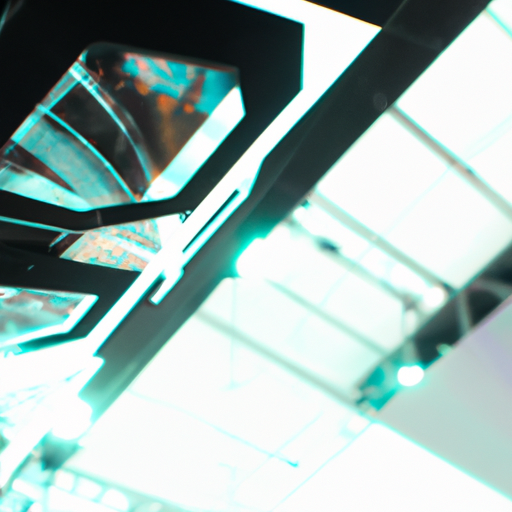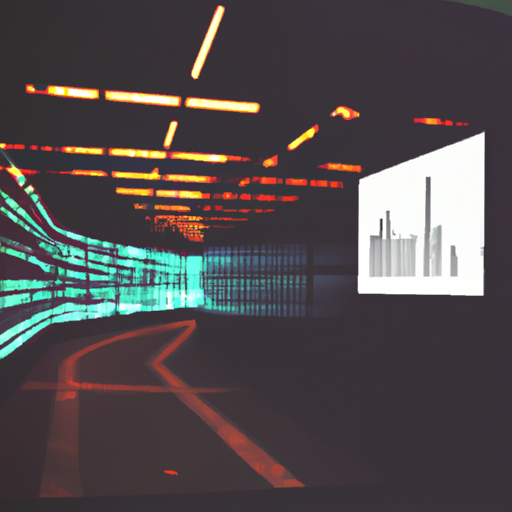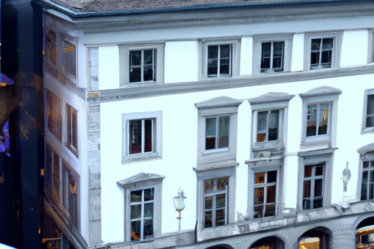
The Role of Artificial Intelligence in Segmentation Strategies for the Bleisure Industry
The bleisure industry, a combination of business and leisure travel, has been growing rapidly in recent years. With more and more professionals looking to extend their business trips to include some leisure activities, it has become crucial for businesses in the travel industry to understand and cater to the needs of this unique segment of travelers. One way to effectively target and serve bleisure travelers is through the use of technology, specifically artificial intelligence (AI), in segmentation strategies.
AI has revolutionized many industries, and the travel industry is no exception. By utilizing AI, businesses can gather and analyze vast amounts of data to gain insights into customer preferences and behaviors. This data-driven approach allows businesses to segment their customer base more effectively, tailoring their offerings to meet the specific needs and desires of different groups of travelers.
Segmentation is a crucial aspect of marketing, as it allows businesses to divide their customer base into distinct groups based on shared characteristics. By doing so, businesses can create targeted marketing campaigns and develop products and services that are more likely to resonate with their customers. In the case of the bleisure industry, segmentation can help businesses identify and understand the unique needs and preferences of bleisure travelers, enabling them to provide personalized experiences that cater to these specific requirements.
AI can play a significant role in segmentation strategies for the bleisure industry by automating the process of data analysis. Traditionally, segmentation has been a time-consuming and labor-intensive task, requiring businesses to manually collect and analyze data. However, with AI, businesses can automate this process, saving time and resources while also improving the accuracy and reliability of the segmentation results.
AI algorithms can analyze large datasets, such as customer demographics, travel patterns, and preferences, to identify patterns and trends that may not be immediately apparent to human analysts. By uncovering these hidden insights, businesses can gain a deeper understanding of their customers and develop more effective segmentation strategies.
Furthermore, AI can also help businesses in the bleisure industry to identify new segments of bleisure travelers that may have been previously overlooked. By analyzing data from various sources, such as social media, online reviews, and booking patterns, AI algorithms can identify emerging trends and behaviors that indicate the presence of new segments within the bleisure market. This allows businesses to adapt their marketing and service offerings to target these new segments effectively.
In addition to segmentation, AI can also assist businesses in personalizing their offerings for bleisure travelers. By analyzing individual customer data, such as past travel history, preferences, and feedback, AI algorithms can recommend personalized travel itineraries, accommodations, and activities that align with each traveler’s unique interests and preferences. This level of personalization not only enhances the overall travel experience for bleisure travelers but also increases customer satisfaction and loyalty.
In conclusion, the bleisure industry presents a unique opportunity for businesses in the travel industry to cater to the needs of a growing segment of travelers. By utilizing AI in segmentation strategies, businesses can gain valuable insights into the preferences and behaviors of bleisure travelers, enabling them to develop targeted marketing campaigns and personalized offerings. AI’s ability to automate data analysis and uncover hidden insights makes it an invaluable tool for businesses looking to thrive in the bleisure industry. As the industry continues to evolve, businesses that embrace AI and leverage its capabilities will be well-positioned to succeed in this rapidly growing market.
Leveraging Big Data Analytics for Effective Segmentation in the Bleisure Industry

The bleisure industry, a combination of business and leisure travel, has been growing rapidly in recent years. With more and more professionals looking to extend their business trips to include some leisure activities, it has become crucial for businesses in the travel industry to effectively segment their target audience. This is where technology and big data analytics come into play.
Big data analytics refers to the process of examining large and complex data sets to uncover patterns, correlations, and insights. In the context of the bleisure industry, big data analytics can be used to analyze vast amounts of data collected from various sources, such as social media, online travel agencies, and customer feedback platforms. By leveraging this data, businesses can gain a deeper understanding of their customers and tailor their offerings accordingly.
One way technology can be utilized for segmentation in the bleisure industry is through social media listening. Social media platforms have become a treasure trove of information, with users sharing their travel experiences, preferences, and recommendations. By monitoring and analyzing these conversations, businesses can identify trends and preferences among their target audience. For example, they can determine which destinations are popular among bleisure travelers, what types of activities they enjoy, and what factors influence their decision-making process.
Another technology-driven approach to segmentation in the bleisure industry is through the use of customer relationship management (CRM) systems. CRM systems allow businesses to collect and organize customer data, such as demographics, travel history, and preferences. By analyzing this data, businesses can identify different segments within their customer base and develop targeted marketing strategies. For instance, they can create personalized offers and recommendations based on a customer’s past travel experiences and preferences.
In addition to social media listening and CRM systems, businesses in the bleisure industry can also leverage machine learning algorithms for segmentation. Machine learning algorithms can analyze large amounts of data and identify patterns and relationships that may not be apparent to humans. By applying these algorithms to customer data, businesses can uncover hidden segments and develop more accurate and effective marketing strategies. For example, they can identify segments based on travel behavior, such as frequent travelers who prefer luxury accommodations or budget-conscious travelers who prioritize cost savings.
Furthermore, technology can also be used to track and analyze customer behavior in real-time. For instance, businesses can use mobile apps and location-based services to collect data on customer movements and activities during their trips. By analyzing this data, businesses can gain insights into customer preferences and behaviors, such as the types of attractions they visit, the duration of their leisure activities, and the amount of money they spend. This information can then be used to refine segmentation strategies and tailor offerings to specific customer segments.
In conclusion, technology and big data analytics play a crucial role in segmentation in the bleisure industry. By leveraging social media listening, CRM systems, machine learning algorithms, and real-time customer behavior tracking, businesses can gain a deeper understanding of their customers and develop targeted marketing strategies. This not only helps businesses in the bleisure industry attract and retain customers but also enhances the overall travel experience for bleisure travelers. So, if you’re in the bleisure industry, it’s time to embrace technology and unlock the power of segmentation.
Enhancing Customer Experience through Personalized Segmentation using Technology in the Bleisure Industry
The bleisure industry, a combination of business and leisure travel, has been growing rapidly in recent years. With more and more professionals looking to make the most of their business trips by adding a leisure component, it has become crucial for businesses in this industry to enhance the customer experience. One way to achieve this is through personalized segmentation using technology.
Segmentation is the process of dividing a market into distinct groups of customers with similar needs and preferences. By understanding the different segments within the bleisure market, businesses can tailor their offerings to meet the specific needs of each group. This not only improves customer satisfaction but also increases the likelihood of repeat business.
Technology plays a crucial role in this process. With the advancement of data analytics and artificial intelligence, businesses now have access to a wealth of information about their customers. By analyzing this data, businesses can identify patterns and trends that can help them better understand their customers’ preferences and behaviors.
One way technology can be used for segmentation in the bleisure industry is through the use of customer relationship management (CRM) systems. These systems allow businesses to collect and store customer data, such as travel preferences, past bookings, and feedback. By analyzing this data, businesses can identify common characteristics among their customers and create targeted marketing campaigns to attract and retain them.
Another technology that can be used for segmentation is geolocation. By tracking the location of their customers, businesses can gain insights into their travel patterns and preferences. For example, if a business notices that a particular segment of their customers frequently visits a certain city for leisure activities, they can tailor their offerings to cater to this specific group.
Furthermore, technology can also be used to personalize the customer experience. For example, businesses can use artificial intelligence to create personalized recommendations for their customers based on their past behavior and preferences. This can include suggesting nearby attractions, restaurants, or activities that align with the customer’s interests.
In addition to enhancing the customer experience, personalized segmentation using technology can also benefit businesses in the bleisure industry by improving operational efficiency. By understanding their customers’ preferences, businesses can optimize their inventory and resources to meet the demand of each segment. This can help reduce costs and increase profitability.
However, it is important for businesses to use technology responsibly and ethically. While collecting and analyzing customer data can provide valuable insights, it is crucial to respect customers’ privacy and ensure that their data is protected. Businesses should be transparent about how they collect and use customer data and give customers the option to opt out if they wish.
In conclusion, utilizing technology for segmentation in the bleisure industry can greatly enhance the customer experience. By analyzing customer data and using technologies such as CRM systems and geolocation, businesses can better understand their customers’ preferences and tailor their offerings accordingly. This not only improves customer satisfaction but also increases operational efficiency. However, it is important for businesses to use technology responsibly and prioritize customer privacy.


